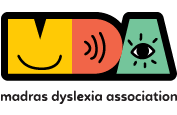
Dyslexia in Adults
Dyslexia in adults
By Dr Angela Fawcett, Professor Emeritus and Vice President of British Dyslexia Association
Why do we need to consider dyslexia in adults? Surely dyslexia is just a problem for children when they’re starting to learn to read – it doesn’t affect adults at all, does it?
I am a leading researcher in dyslexia across the age range and the author of Pearson’s Screening Test for Dyslexia, DST- J India, the first in India for ages 6 ½ to 11. My interest in dyslexia started 35 years ago when my son Matthew was diagnosed as dyslexic at the age of 5 ½. As time went on we began to realise that my husband David was also dyslexic. He had struggled through school at each stage, graded only fair but a very pleasant member of the class.
David is a highly creative man who is verbally skilled, but even as an adult he does not enjoy reading, he is troubled by his spelling and his memory is terrible. This is typical of an adult with dyslexia, even when they have learned to read and completed school. Dyslexia is genetic in origin so if a parent is dyslexic there is 50% chance that their child will also be dyslexic. And, of course, this is something that persists throughout your life – dyslexia existed before children were routinely asked to learn to read, because it is a difference in brain organisation.
This means the problems will show up when asked to do something that demands you coordinate your resources, such as learning to read or spell. But the problem is there in every aspect of learning and it seems that if you are dyslexic it is just difficult to become automatic in any of your skills. This means you always have to work harder and put in more effort than other people.
The problem is most severe for adults who have not received support throughout their schooling as with many adults with dyslexia in India. This means they are likely to continue to struggle with literacy and this will impact on their working lives. A key issue in dyslexia is organisation and time management and this is something needed throughout life, in work, social and home life. It is easy to mistake the problems associated with dyslexia for lack of care. So, just as the younger child would be accused of carelessness in school, so many dyslexic adults may appear disorganised forgetful and uncaring, because they may not remember important issues.
It is important to recognise that this is an integral part of dyslexia in order to ensure success in life. Of course, it is not just in your relationships that dyslexia can be a problem – your manager may assume that you are lazy and incompetent because it takes you longer to complete your tasks. I have worked with many adults who have needed to explain these difficulties in terms of dyslexia in order to ensure that they remain in employment. This is, of course, dependent on whether your skills are sufficiently developed to apply for a job in the first place, and to be accepted at an interview. This applies at all levels including those dyslexic students who worked hard enough to obtain a place at university, who continue to struggle with spelling new vocabulary, meeting their deadlines, dealing with their admin and building a new life as a student with all the organisation involved.
